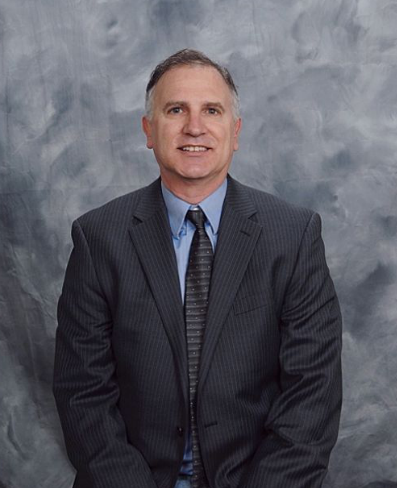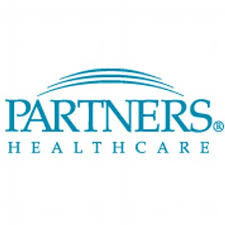American Medical Association (AMA)
See the following -
Is an Open Source EMR (OpenEMR) the Right Choice for Medical Practices?
 Being the lead developer of OpenEMR, the world’s most widely deployed open source electronic medical record (EMR) system, I field calls on a daily basis from people who want to implement it. As part of the due diligence to discover and deliver the best possible outcome for the client, we give them a set of different implementation options that they can consider. The options range from a basic OpenEMR implementation at their offices, to a far more advanced and feature-packed “cloud” solution called BlueEHS.
Being the lead developer of OpenEMR, the world’s most widely deployed open source electronic medical record (EMR) system, I field calls on a daily basis from people who want to implement it. As part of the due diligence to discover and deliver the best possible outcome for the client, we give them a set of different implementation options that they can consider. The options range from a basic OpenEMR implementation at their offices, to a far more advanced and feature-packed “cloud” solution called BlueEHS.
- Login to post comments
Jean Piaget & the Usability of Healthcare Software
 The usability of healthcare software, or lack thereof, has been a topic of discussion for several years. The problem has become so widespread that the American Medical Association (AMA) has recently issued a framework for improving the ease of use of EHRs that, in part, includes the reduction of 'cognitive load.' Piaget’s theories can be applied to understanding some of the reasons why many EHRs are just too hard to use. They can provide guidance for finding ways to reduce the cognitive workload that so often hinders the user experience of EHR systems. Read More »
The usability of healthcare software, or lack thereof, has been a topic of discussion for several years. The problem has become so widespread that the American Medical Association (AMA) has recently issued a framework for improving the ease of use of EHRs that, in part, includes the reduction of 'cognitive load.' Piaget’s theories can be applied to understanding some of the reasons why many EHRs are just too hard to use. They can provide guidance for finding ways to reduce the cognitive workload that so often hinders the user experience of EHR systems. Read More »
- Login to post comments
Looking Back At A 2014: Thermidor For Health Care Reform?
As money drains out of health care reform, there are indications that the impetus for change is receding as well...
- Login to post comments
Medical Boards Behaving Badly
 Rats! I was all excited to write about virtual reality -- what with the long-anticipated release of the Oculus Rift -- or about how perhaps augmented reality is going to be the new reality, as some experts predict. Then Consumer Reports came out with a report that I had to write about: What You Don't Know About Your Doctor Could Hurt You. Long story short: chances are you don't know what you'd like to. Consumer Reports did a deep dive on the actions of the California medical board, obtaining their entire database of doctors on probation...
Rats! I was all excited to write about virtual reality -- what with the long-anticipated release of the Oculus Rift -- or about how perhaps augmented reality is going to be the new reality, as some experts predict. Then Consumer Reports came out with a report that I had to write about: What You Don't Know About Your Doctor Could Hurt You. Long story short: chances are you don't know what you'd like to. Consumer Reports did a deep dive on the actions of the California medical board, obtaining their entire database of doctors on probation...
- Login to post comments
Medical Practice Managers Seek EHR Penalty Moratorium In 2015
Medical group practice administrators are calling on the Obama administration to prevent Medicare payment penalties under the federal electronic health record adoption initiative for physicians... Read More »
- Login to post comments
New $1.2b Partners Epic System a Prescription for Frustration
 The demands of the new system are so taxing and time-consuming, Lydon said, that the computer has come between her and her patients.More than once, Lydon says, she has burst into tears on the drive home. “I know people throughout the hospital, and they find the same thing: it’s tedious, labor intensive, and you feel like you can’t do what you want to do,” said Lydon, a nurse for more than 30 years...
The demands of the new system are so taxing and time-consuming, Lydon said, that the computer has come between her and her patients.More than once, Lydon says, she has burst into tears on the drive home. “I know people throughout the hospital, and they find the same thing: it’s tedious, labor intensive, and you feel like you can’t do what you want to do,” said Lydon, a nurse for more than 30 years...
- Login to post comments
NIST Funds Secure Online Healthcare Transactions Pilot
The National Institute of Standards and Technology has awarded $9 million in grants to five collaborative groups, including one for healthcare exchange, to demonstrate how online transactions can be secure and private as part of the National Strategy for Trusted Identities in Cyberspace. Read More »
- Login to post comments
Not All Snake Oil Is Digital
 A different take on "snake oil" in health care was a thoughtful piece in Health Affairs, by David Newman and Amanda Frost, discussing the quality measurement morass in health care. They cite a study that estimated we spend some $15.4b annually collecting several thousand different quality measures, few of which have any meaning to consumers and all-too-few of which seem to be used to actively improve quality. It isn't that they don't think we should be measuring quality -- far from it -- but, rather: "Patients should not be able to choose substandard quality care, and substandard quality care should not be allowed to be offered in the market." Now, there's a novel concept!
A different take on "snake oil" in health care was a thoughtful piece in Health Affairs, by David Newman and Amanda Frost, discussing the quality measurement morass in health care. They cite a study that estimated we spend some $15.4b annually collecting several thousand different quality measures, few of which have any meaning to consumers and all-too-few of which seem to be used to actively improve quality. It isn't that they don't think we should be measuring quality -- far from it -- but, rather: "Patients should not be able to choose substandard quality care, and substandard quality care should not be allowed to be offered in the market." Now, there's a novel concept!
- Login to post comments
Number of Painkiller-addicted Newborns Triples in 10 Years
The number of babies born addicted to the class of drugs that includes prescription painkillers has nearly tripled in the past decade, according to the first national study of its kind. Read More »
- Login to post comments
Obama Administration Announces Key Actions to Accelerate Precision Medicine Initiative
 A year ago the President announced the launch of the Precision Medicine Initiative to accelerate a new era of medicine that delivers the right treatment at the right time to the right person, taking into account individuals’ health history, genes, environments, and lifestyles. Precision medicine is already transforming the way diseases like cancer and mental health conditions are treated. Molecular testing for cancer patients lets physicians and patients select treatments that improve chances of survival and reduce adverse effects...
A year ago the President announced the launch of the Precision Medicine Initiative to accelerate a new era of medicine that delivers the right treatment at the right time to the right person, taking into account individuals’ health history, genes, environments, and lifestyles. Precision medicine is already transforming the way diseases like cancer and mental health conditions are treated. Molecular testing for cancer patients lets physicians and patients select treatments that improve chances of survival and reduce adverse effects...
- Login to post comments
Obama Should Act Immediately On Veterans' Healthcare, AMA Delegates Agree
President Barack Obama should take immediate action to allow veterans to seek care outside of the Veterans Affairs Department's healthcare system, the American Medical Association House of Delegates resolved Tuesday. It also recommended that state and local medical societies and local VA offices create registries of doctors willing to provide immediate veteran care....
- Login to post comments
Obesity And The AMA
Last week’s announcement by the American Medical Association’s (AMA’s) council on science and public health cheered me. It said that the AMA should not designate obesity a disease, because doing so was unlikely to improve health outcomes and because the most widely utilized obesity metric — the body mass index or BMI — was simplistic and flawed. [...] Read More »
- Login to post comments
OSEHRA 2014 Summit Shows the Future for Open Source EHR's— US Government IT Procurement
 The recent 2014 OSEHRA Open Source Summit: Global Collaboration in Healthcare IT, held September 3-5 in Bethesda, MD, was a huge success and clearly marks a watershed moment for open source health information technology (HIT), as well as a transformation in the way that US government agencies procure technology. The Summit featured more than 120 speakers addressing 90 separate sessions over three days. According to Seong K. Mun, President and CEO of OSEHRA, “this Summit demonstrated solid growth in both the depth and breadth of the OSEHRA Community.” Read More »
The recent 2014 OSEHRA Open Source Summit: Global Collaboration in Healthcare IT, held September 3-5 in Bethesda, MD, was a huge success and clearly marks a watershed moment for open source health information technology (HIT), as well as a transformation in the way that US government agencies procure technology. The Summit featured more than 120 speakers addressing 90 separate sessions over three days. According to Seong K. Mun, President and CEO of OSEHRA, “this Summit demonstrated solid growth in both the depth and breadth of the OSEHRA Community.” Read More »
- Login to post comments
Physician Burnout Is A Public Health Crisis: A Message To Our Fellow Health Care CEOs
 The Quadruple Aim recognizes that a healthy, energized, engaged, and resilient physician workforce is essential to achieving national health goals of higher quality, more affordable care and better health for the populations we serve. Yet in a recent study of U.S. physicians, more than half reported experiencing at least one symptom of burnout—a substantial increase over previous years—indicating that burnout among physicians is becoming a national health crisis. Leadership is needed to address the root causes of this problem and reposition the health care workforce for the future. The authors of this paper—the CEOs of our respective institutions—are committing to do just that...
The Quadruple Aim recognizes that a healthy, energized, engaged, and resilient physician workforce is essential to achieving national health goals of higher quality, more affordable care and better health for the populations we serve. Yet in a recent study of U.S. physicians, more than half reported experiencing at least one symptom of burnout—a substantial increase over previous years—indicating that burnout among physicians is becoming a national health crisis. Leadership is needed to address the root causes of this problem and reposition the health care workforce for the future. The authors of this paper—the CEOs of our respective institutions—are committing to do just that...
- Login to post comments
Poor MU Showing Renews Calls For Change
A fresh batch of disheartening Stage 2 attestation numbers has prompted several industry groups to once again implore the Centers for Medicare & Medicaid Services to shorten the meaningful use reporting period in 2015...
- Login to post comments